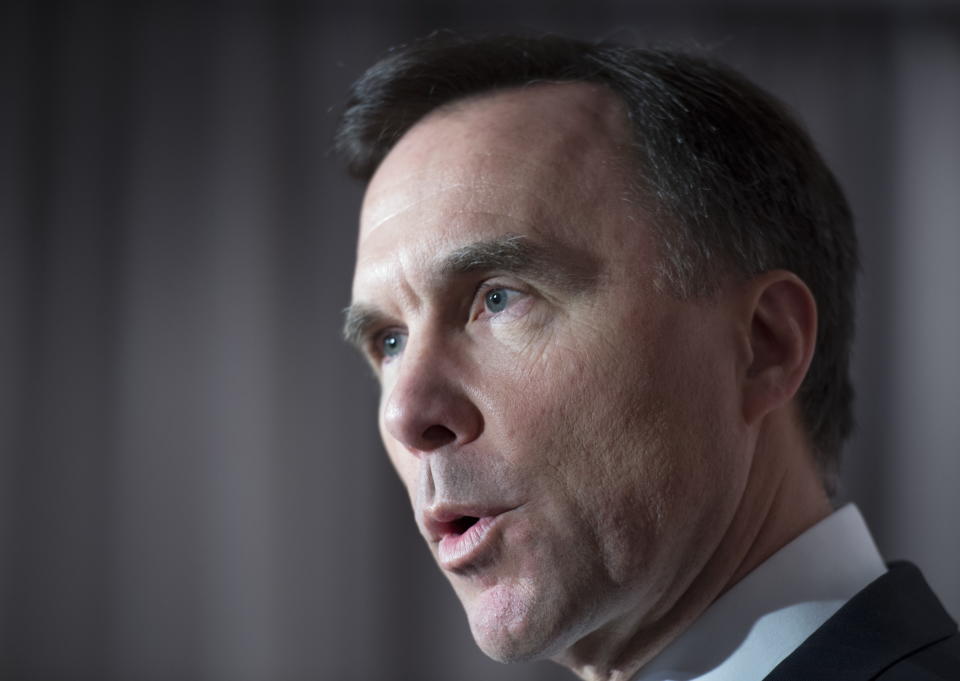RBC to Morneau: There’s no ‘magic bullet’ to solve millennial housing woes

Finance Minister Bill Morneau does not have a “magic bullet” budget measure up his sleeve to meaningfully help millennials priced out of the housing market, Royal Bank of Canada warns.
The Trudeau government is set to release its pre-election budget on March 19. Morneau said in January that “affordable housing for millennials” will be addressed when the Liberals lay out their spending plans, without delving into specific details.
Rumours have swirled about the government opening up access to 30-year insured mortgages, an increase from the current 25-year limit, or tweaking stress test rules.
RBC senior economist Robert Hogue urges Morneau to “tread carefully,” adding that such measures fail to address the root of the problem, a lack of affordable housing options in the nation’s biggest markets.
“On the surface, ideas like relaxing the mortgage stress test, extending the maximum amortization period for insured mortgages, or increasing the amount of RRSP take-out for a first home down payment might bring short-term relief to buyers,” he wrote in a research note. “What millennials in Vancouver and Toronto really need is more inventory of homes they can afford, and a better mix of housing options – be it to own or rent.”
Hogue said efforts to boost demand or up the purchasing power of buyers are likely to inflate home prices, making it more difficult for the next generation to enter the market. He said new measures on that front would also add to already high household debt.
The solution, Hogue said, should be to remove barriers blocking home developers from responding quickly to demand for new housing.
“A more nimble and responsive supply side of the market would go a long way to address the needs of buyers on a more permanent basis,” he wrote. “Solving the supply issues isn’t the federal government’s responsibility alone, but requires a concerted effort across all levels of government.”
Canada’s millennials more likely to own than U.S. peers
The rate of home ownership has been in decline for the past decade, but RBC takes issue with the notion that Canada has a problem.
Hogue notes the proportion of Canadian households who own a home is the among the highest in advanced economies. Canada’s least affordable cities, Toronto and Vancouver, have home-ownership rates about double that of Paris and Berlin.
Forty-three per cent of Canadian households under 35 years of age own their home, compared to 34.5 per cent in the U.S, according to 2016 data from Statistics Canada.
Calgary was found to have the highest rate of young homeowners, at 50.6 per cent. Victoria was the lowest, at 27.4 per cent.
Calgary also had the highest overall rate of homeownership compared to major global cities, at 73 percent. Paris ranked lowest, at 33.2 per cent.
Download the Yahoo Finance app, available for Apple and Android.

 Yahoo Finance
Yahoo Finance 
